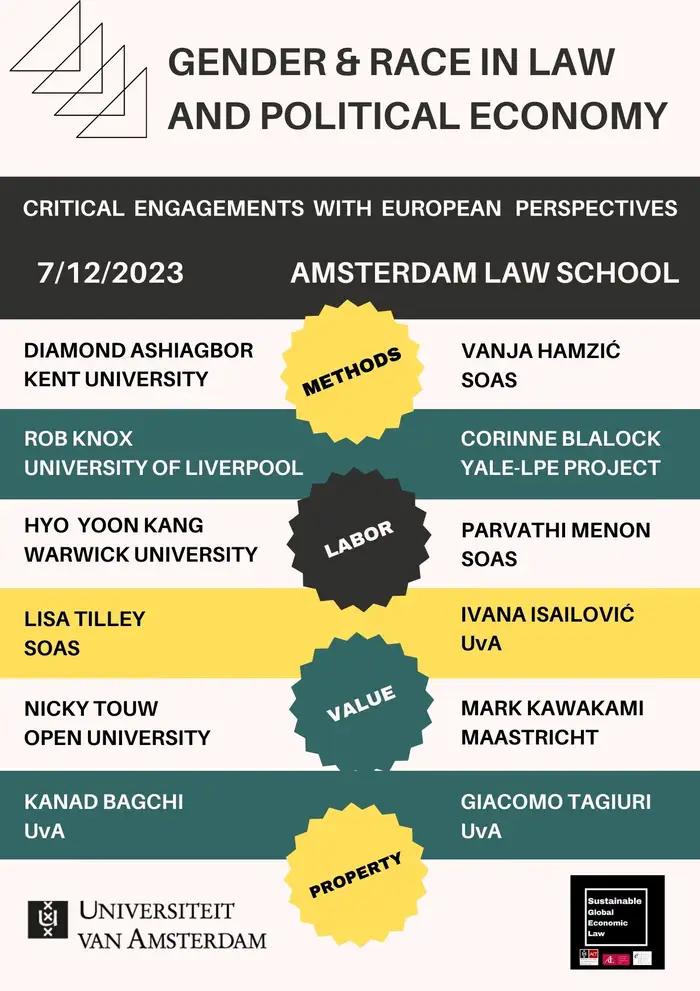The Sustainable Global Economic Law (SGEL) center at the University of Amsterdam is holding an interdisciplinary event on December 7th (9am CET/ 8am GMT) to explore how gender and race relate to law and political economy in comparative transnational contexts, centering on European perspectives and legacies. Speakers will address this overarching theme in connection to three key overlapping legal notions that structure the economy: value, labor and property, from a variety of interdisciplinary perspectives.
The notions of ‘race’ and ‘gender’ are very often erased and sidelined in mainstream legal thinking about the economy, particularly in continental Europe. But, for decades now, feminists, critical race and other critical scholars have demonstrated that any meaningful understanding of how the economy works needs to include meaningful engagements with notions of gender and race.
Materialist feminists showed that racialized understandings of gender should be front and center in the analyses of capitalism and neoliberalism. They have also a long tradition of connecting their analyses of the economy to the ongoing ecological crisis.
Some legal scholars have integrated these insights to show how gender relations and law interact in the structuring of the economy. For example, they showed how economic law produces gendered ‘workers’, and shapes ideas about sexuality and the family. They questioned the private/public divide, and the division between family, welfare state, and economic law. Despite its rich contributions, this kind of scholarship is still to a large extent marginalized in continental Europe.
Similarly, by challenging the myth of ‘race-blind’ markets, critical scholars showed that capitalist economies, and their modes of governance are embedded within, and keep reproducing racial hierarchies and colonial legacies.
These insights have been quite influential in international public law, and some of this scholarship is by now well-established and unavoidable. In other fields of study, however, such as European or transnational legal studies, concepts such as ‘racial capitalism’, ‘postcolonialism,’ or ‘decolonial thought’ are still very much a blindspot. That is the case even more so in the study of domestic (private & public) law. In other words, scholars and teachers in continental Europe, still largely operate under the assumption that contract, property, corporate law as well as family law are race-neutral.

